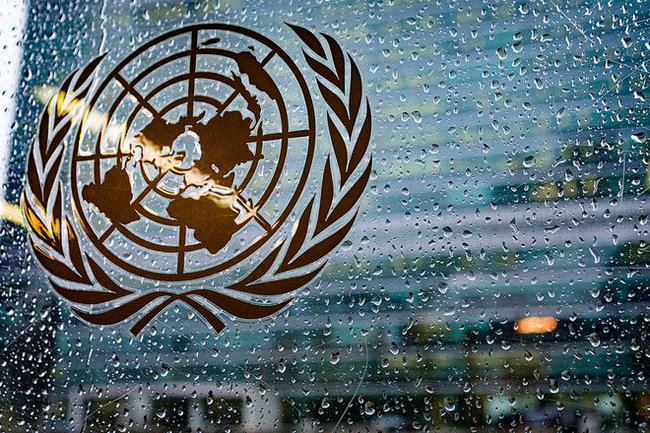Opening remarks by Vassily Nebenzia, Permanent Representative of Russia to the UN, at the webinar on "Impact of Unilateral Coercive Measures on the Global Fight Against the COVID-19"
Dear colleagues and friends,
I am grateful for the opportunity to be a co-organizer of today´s event. It is hard to overestimate its importance. The whole world is facing one of the greatest emergencies. The well-being of people, social and economic development of all countries are under threat.
The Russian Federation is convinced that global solidarity, multilateralism and joint efforts of all the members of international community in the face of the pandemic are needed to overcome effectively its consequences and get on track of sustainable recovery.
The particular focus of the efforts should be to address the needs of developing countries – their ability to cope with the COVID-19 consequences is limited. It is self-evident that unilateral coercive measures imposed without sanction of the Security Council are an additional burden on the developing countries undermining their preparedness for the pandemic and effectiveness of their response.
That is why the Russian Federation together with like-minded governments as well as multilateral institutions and independent politicians, economists, human rights and civil society activists has been consistently calling to abolish such unlawful measures. This call is becoming more important today when we see that these measures hinder access to essential health-care services and safe, effective and affordable essential medicines, vaccines, personal protection equipment and food items. A number of Western countries appeal to increase donor base of the international development assistance to help developing countries, at the same time they are imposing unilateral coercive measures against those countries, which undermine their potential.
Amid growing global economy crisis unilateral illegitimate and politically motivated restrictive measures are becoming increasingly extraterritorial blocking access to financial resources and advanced technologies, including in healthcare. There is another significant adverse effect caused by such measures. Many operators are unwilling to engage in transactions related to a sanctioned country or individual, even if those are legitimate (over-compliance), for fear of accidentally violating the sanctions and related lack of economic incentives.
These harmful measures are in violation of the UN Charter, including its fundamental principles of sovereign equality of States, non-interference in their internal affairs and friendly co-operation. They also violate other obligations under international law, undermine the right of the States to development and their progress to achieve Agenda 2030 sustainable development goals.
Calls to cease unilateral coercive measures are becoming louder. We support recent appeals by the UN Secretary-General, the UN High Commissioner for Human Rights, the UN Special Rapporteur on UCMs, the WHO Director-General, the Secretary-General of UNCTAD, to name only a few in this regard.
We must promote non-discriminatory approach in providing access to virtual UN events for all Member-States. We expect that the UN Secretariat guarantees the use of sanction-free virtual platforms for that purposes. Unfortunately, we have experience of the contrary.
We are looking forward to working with the UN Special Rapporteur on UCMs and other UN organizations on the basis of the provisions of the UNGA resolution 74/200 that mandated the Secretary-General to “monitor the imposition of unilateral economic measures as a means of political and economic coercion and to study the impact of such measures on the affected countries...”. I hope our today’s webinar will contribute to this aim.
Thank you.
